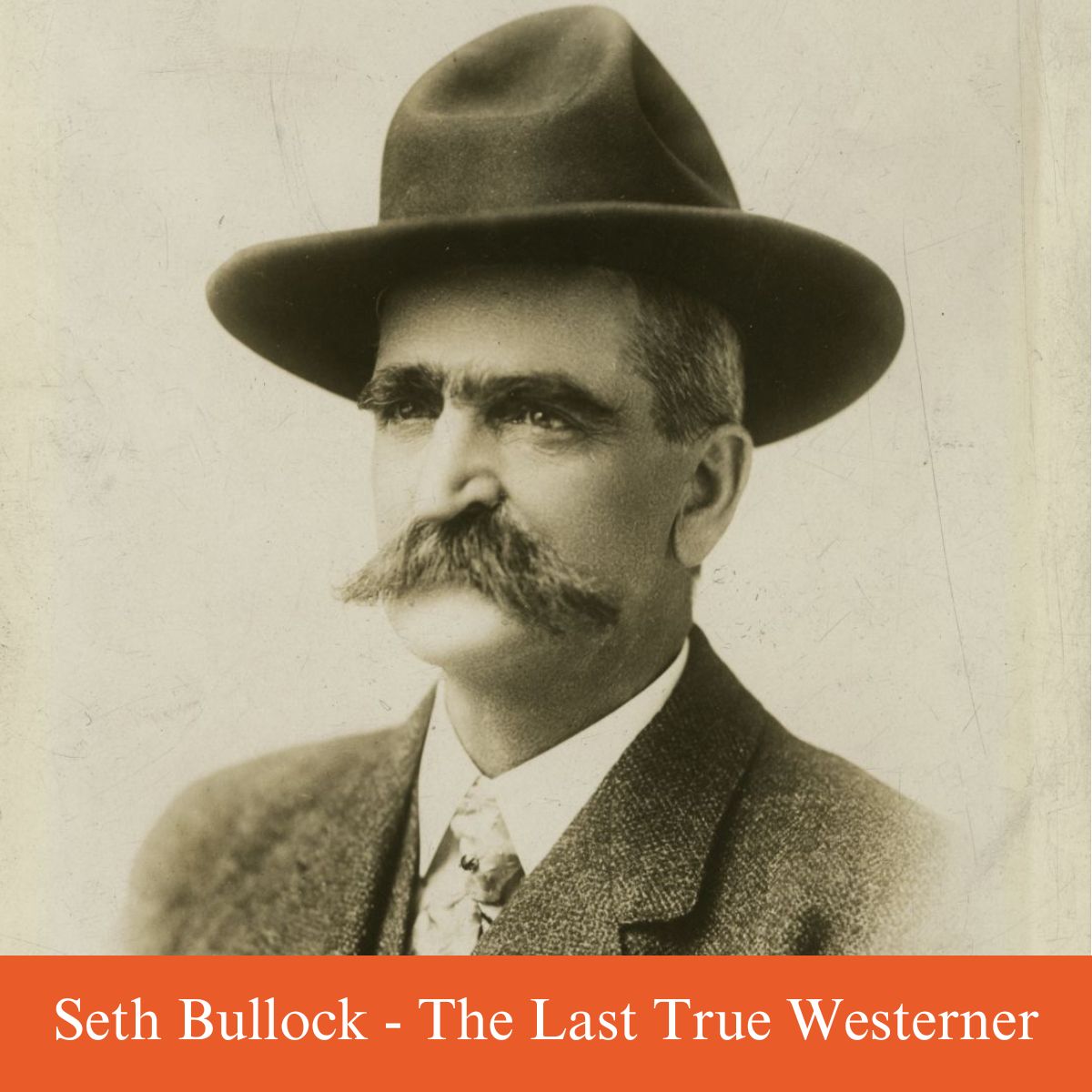Seth Bullock was a popular figure in the Wild West, and he resided in Deadwood, South Dakota, from 1876 until his death. He would become a prominent citizen in Deadwood and would wear many hats. He was a businessman, politician, sheriff, and eventually a U.S. Marshal.

He operated the Bullock Hotel, which is still standing in Deadwood, South Dakota, today.
Jump to:
Early Years
Seth Bullock was born in Canada, but little of his early years are known.
His father was named George Bullock and was a Sergeant in the British Army and seemed to be active in Canadian politics. Seth's mother was from Scotland, and her name was Anna Findley Bullock.
By 1860, Bullock's father, George Bullock, was forced to resign his position as County Treasurer due to missing funds. To avoid prosecution in Canada, Bullock's father fled across the border to Detroit, Michigan, U.S.A., leaving his eight children alone in Sandwich, Ontario, Canada. Bullock's mother had died during this time, so the children were left to take care of themselves. And, the property owned by Bullock's father in Sandwich was either seized by his creditors or sold at public auction in 1863, as he had defaulted on his mortgage and other debt obligations.
Bullock's childhood was not a happy one. His father was a strict disciplinarian, known to beat young Seth for minor infractions. Bullock ran away first at age 13, then again at age 16, to Montana to live temporarily with his older sister, Jessie Bullock. By age 18, he had permanently left home
The West
Seth arrived in Helena, Montana, in 1867. Here, he quickly took up politics and was eventually elected to the state legislature, where he served from 1871 - 1872. During his tenure, he helped create Yellowstone National Park.
In 1873, he was elected sheriff of Lewis and Clark County in Montana. Here is where he got his first taste of law enforcement and oversaw the hanging of Clell Watson. Watson had stolen a horse and proceeded to get into a gunfight with Bullock. Seth sustained a small wound on his shoulder before subduing Watson.
At the public hanging, a large mob showed up and frightened the executioner. Bullock took it upon himself to climb up the scaffold and execute the execution himself while he held off the mob with his shotgun.
Bullock resided in Helena a little longer and opened a hardware store. He and a friend decided that it would be best to try their luck in Deadwood, South Dakota. Deadwood was a Gold Rush town, and he believed that the population there would be more likely to buy his wares than those who lived in Helena.
Deadwood
Seth Bullock arrived in Deadwood, and the day after he arrived, Wild Bill Hickok was shot in the back while playing poker by Jack McCall.
Deadwood was lawless, and it was in need of someone with experience to bring law into the boom town. Bullock seemed to be an obvious choice since he already had experience in keeping the law. He was appointed, not elected, by the Governor of the Dakota Territory in 1877. The appointment would be short-lived, and in November, he would lose an election for Sheriff to John J. Manning. Bullock would challenge for Sheriff again in 1878 and would again lose to Manning.
During Bullock's time as sheriff, he kept the peace but made some powerful enemies. One of those enemies was Al Swearengen, who was the proprietor of Gem Theater, Deadwood's most notable brothel. The two had several run-ins, and Swearengen had deep pockets, which allowed him to buy off politicians and others in influence.
Bullock purchased a ranch where Redwater Creek met the Belle Fourche River and dubbed it the S&B Ranch Company. Bullock is also credited with introducing alfalfa farming to South Dakota in 1881. Later, he became a deputy U.S. Marshal, partnered with Star and Harris Franklin in the Deadwood Flouring Mill, and invested in mining, the local growth industry. Bullock and Star eventually expanded their business interests to the towns of Spearfish, Sturgis, and Custer.
Bullock, then a deputy sheriff from Medora, North Dakota, met Theodore Roosevelt in 1884 while bringing a horse thief known as Crazy Steve into custody on the range near what would become the town of Belle Fourche. The two became lifelong friends, Roosevelt later saying of Bullock, "Seth Bullock is a true Westerner, the finest type of frontiersman."
In 1905, Seth Bullock garnered the attention of President Theodore Roosevelt, who appointed him U.S. Marshal. President William Taft followed suit, and in 1909, he was once again appointed to be a U.S. Marshal.
As Deadwood became more civilized and Bullock gained more stability and influence, he sent for his wife, Martha Eccles Bullock, who was living in Michigan along with their daughter. The two went on to have two more children, a son and a daughter.
Later Years
Seth Bullock and others helped bring the railroad through the area by giving them the right-of-way across their land. This helped create more growth in the region and became instrumental in founding a new town, Belle Fourche. Belle Fourche would become the largest railhead for livestock in the United States.
Bullock's hardware store would burn down in 1894, and he would replace it with the Bullock Hotel. The Bullock Hotel was a three-story luxury hotel that still stands and is in operation today.
Bullock and Roosevelt would remain friends for the rest of their lives. Despite not being used in World War 1 by President Woodrow Wilson, Bullock helped create a volunteer unit similar to that of the Rough Riders in the Spanish-American War.
After Roosevelt's death in 1919, Bullock had a monument built in his honor.
Seth Bullock would die of colon cancer shortly after. He would be buried among many famous gunslingers of the Wild West in Mount Moriah Cemetery.
